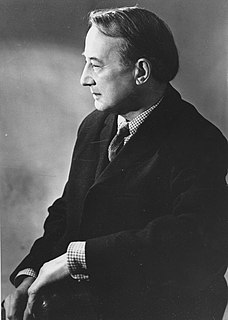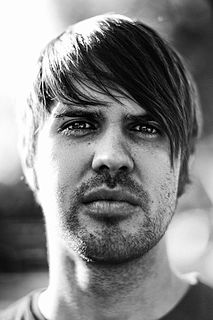A Quote by George A. Romero
As movie monsters go, zombies are the most human. They were human at one time. So we are confronted with ourselves in a way, which is much more frightening and disturbing.
Related Quotes
Time is the most precious gift in our possession, for it is the most irrevocable. This is what makes it so disturbing to look back upon the time which we have lost. Time lost is time when we have not lived a full human life, time unenriched by experience, creative endeavor, enjoyment, and suffering. Time lost is time not filled, time left empty.
What children don't understand, and can't understand until they grow up some, is how much the whole fabric and process of human society depends on everybody agreeing to ignore, most of the time, the fact that all of us are, most of the time, inadequate, incompetent, pitiful, and, in fact, naked to our enemies. None of us really has very much in the way of spiritual, moral clothing. We dress ourselves in rags. And we agree to say nothing about it. To a very large extent, it is human charity that clothes us.
Different ages have certain approaches, which may be more effective for one age and no longer effective in another age. The world that we live in now has much greater density to it; it is much more all-pervasive. And when I say "world," I include the human mind in it. The human mind has grown even since the time of the Buddha, 2,500 years ago. The human mind is more noisy and more all-pervasive, and the egos are bigger.
Compassion- which means, literally, "to suffer with"- is the way to the truth that we are most ourselves, not when we differ from others, but when we are the same. Indeed the main spiritual question is not, "What difference do you make?" but "What do you have in common?" It is not "excelling" but "serving" that makes us most human. It is not proving ourselves to be better than others but confessing to be just like others that is the way to healing and reconciliation.
This, I believe, is the appropriate image of human intercourse -- appropriate because it recognizes the qualities, the diversities, and the proper relationships of human utterances. As civilized human beings, we are the inheritors, neither of an inquiry about ourselves and the world, nor of an accumulating body of information, but of a conversation, begun in the primeval forests and extended and made more articulate in the course of centuries. It is a conversation which goes on both in public and within each of ourselves.
Britney's a very beautiful human being. After I worked with her, I realized that there was a reason why she was the most popular pop artist over so many other pop artists at that time who were more talented, had better voices. And it was because of her heart, her soulShe had the most amazing energy and was always positive and a very discreet person. We were young, too, and got to make a movie about three friends on a road trip. It was so much fun!






































